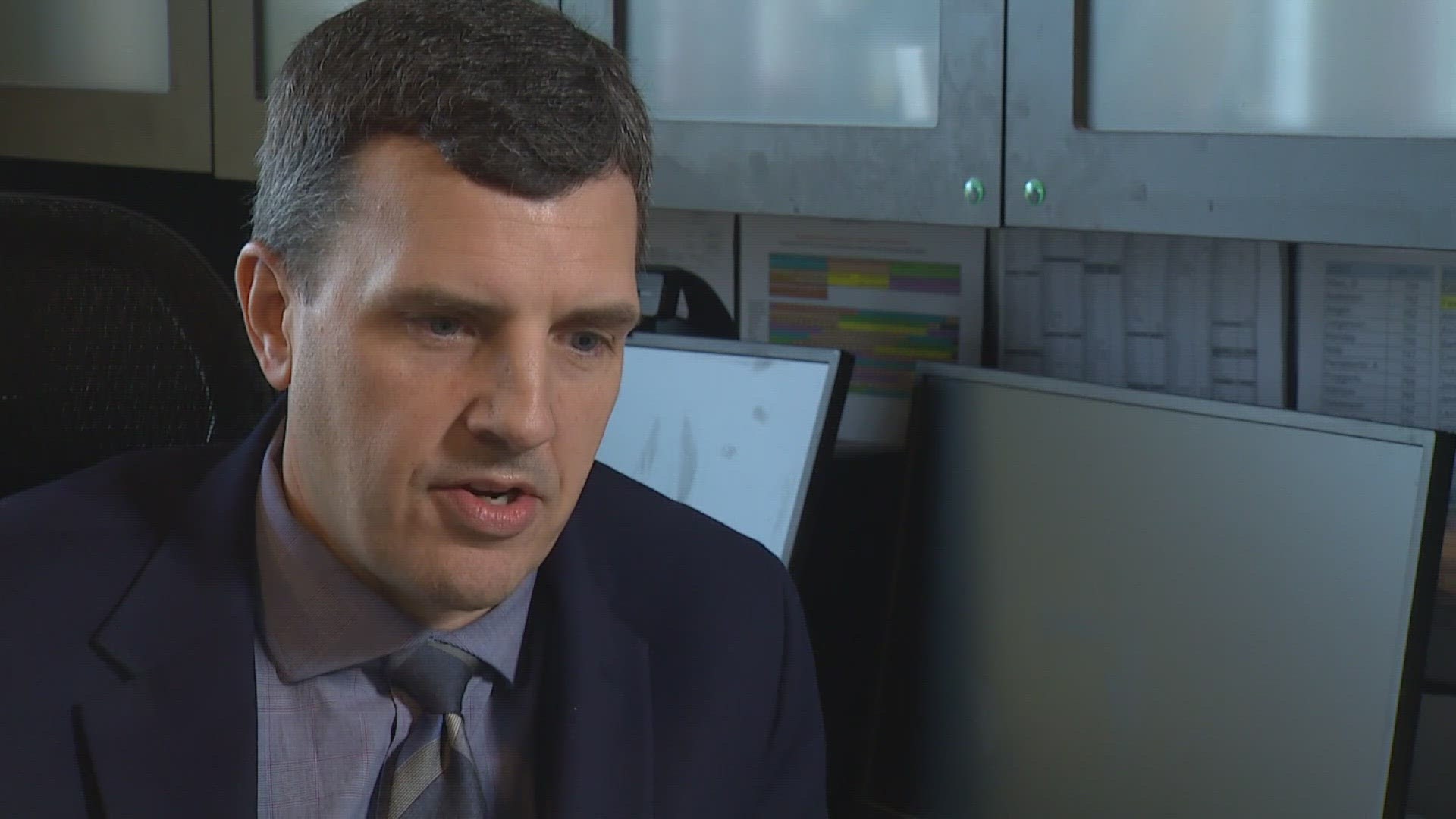PORT TOWNSEND, Wash. — A prosecutor in Jefferson County is speaking out against a new state law that he believes played a role in the death of a baby in Port Townsend. He said the law needs to be changed to better protect kids.
His call for action comes after a less than one-month-old baby was found dead in the bushes near Kah Tai Lagoon in Port Townsend on Saturday. An autopsy was done on the baby’s body Wednesday and a cause of death had not yet been revealed. But no matter the cause of death, the Jefferson County Prosecuting Attorney, who works a few blocks from the lagoon, said this could have been prevented.
“We have kind of run through the gamut of emotions here,” said James Kennedy, the Jefferson County Prosecuting Attorney and Coroner. “Anger and frustration and sadness have been the main ones, in that it's very tragic and sad. But the anger and frustration stems from the fact that from our standpoint, this result was very foreseeable and also very preventable.”
Documents show the baby was born with fentanyl in his system and DCYF gave temporary custody to the baby’s father Jordan Sorenson. Court documents show Sorenson passed initial drug tests to care for the baby, but then started not complying with drug testing and a few days later disappeared with the infant.
“Drug use is a disease and it definitely impairs one's ability to accurately judge or perceive themselves in an objective manner,” Kennedy said.
Sorenson was eventually found without the baby and led police to the spot where he said he put the baby’s body. Sorenson said he fell asleep with the baby on his lap and woke up to find the baby dead between his body and the chair he was in. He told police he did not do drugs until after the baby died. He is now in jail for charges of kidnapping, disposing of a body, and concealing a body.
Kennedy thinks a new law that went into effect in July, called the “Keeping Families Together Act” played a role in the death.
The law states that the existence of things like inadequate housing or substance abuse, do not by themselves constitute imminent physical harm to a child. Kennedy said that has proven to be wrong.
“I don't want to see this happen again," Kennedy said. "This was a foreseeable result. I don't understand how the legislature did not contemplate this happening when they passed this law. It's preventable. And I don't want to see another child die in circumstances like this.”
One state representative introduced a bill this session to try to reverse some of the language in this law.
“If you're using hard drugs like fentanyl, you just do not have the capacity to parent your child, especially if they're a baby,” said state representative Travis Couture, who represents the 35th District.
- Require immediate removal of children from caretakers using illegal substances, including fentanyl, by classifying the presence of those drugs as "imminent harm"
- Create additional training and fentanyl-specific risk assessment tools for caseworkers investigating abuse
- Provide caseworkers with fentanyl test strips to confirm the presence of fentanyl in the home
A report from the Washington State Office of the Family and Children’s Ombuds show there were 85 deaths of children who were under the supervision of the state in 2022. Twenty-two of those deaths were due to accidental drug ingestion or overdose. Of those child drug deaths, 67% were due to fentanyl.
“If we gavel out at the end of the session and not have done anything strong enough to protect these kids, we're just going to be sitting there quarter after quarter watching them die because the social workers don't have the tools to save them,” Couture said.
DCYF sent KING 5 a statement saying that can not comment directly on the Port Townsend case, but responded to concerns about the "Keeping Families Together Act:"
“The Keeping Family’s Together Act bill raised the legal standard for removing a child from the home. There are statutory constraints and directives we must adhere to, including those implicit in the Keeping Families Together Act.
Since the act's implementation in July of 2023, we have seen a 23% reduction in children and youth entering care statewide. DCYF case workers prevent unnecessary out-of-home placements while keeping children safe. They face challenges.
First there is scale. In 2022, DCYF case workers provided a face-to-face response for more than 60,000 children where there were allegations of abuse or neglect. Only 6% resulted in placement into foster care, but the volume of work is immense. Keeping kids at home is the right thing to do, when it can be done safely, and it requires more intensive engagement with families in the home. This requires staff. We must alleviate workload and have adequate community supports to meet the needs of families.
Next there is fentanyl. Since the passage of the Keeping Families Together Act, this drug has exploded to epidemic proportions while availability of community-based resources to keep families safe has declined. Washington has seen increased child fatalities and near fatalities involving fentanyl. Most of these critical incidents are situations with no apparent imminent safety threat to the child, but nevertheless cases with high risk due to presence of this drug.
We have been working with legislators, particularly with regard to developing House Bill 2447 to better define guidelines for the courts when fentanyl plays a role.”

